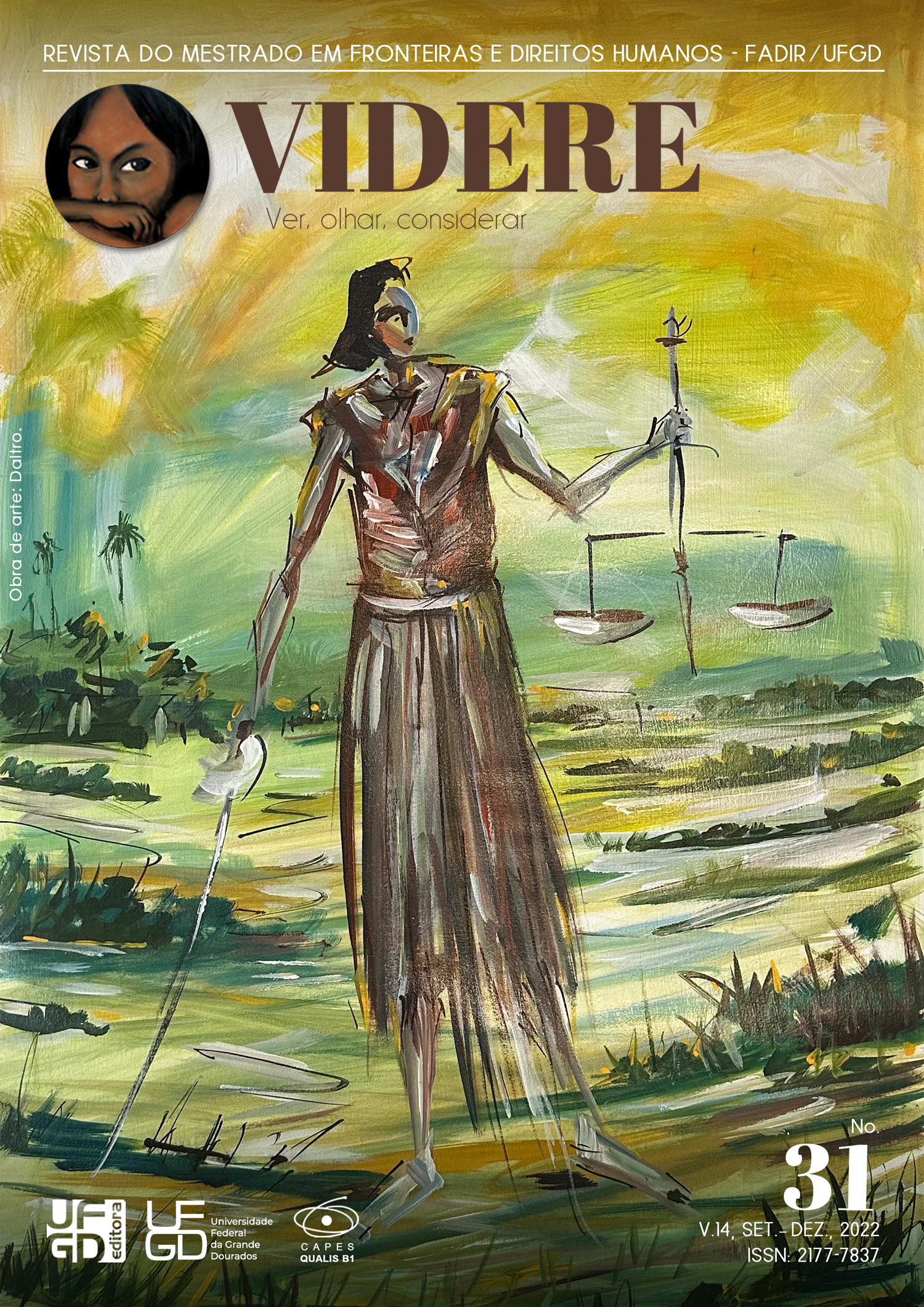CONSUMPTION RELATIONSHIP: A CONCEPT UNDULY RELATIVE
DOI:
https://doi.org/10.30612/videre.v14i31.16880Keywords:
consumer protection code, courts, consumerist doctrine, consumer relationsAbstract
The present work aims to analyze the insertion of the legal-obligational relationship of consumption in the Brazilian legal system, as well as to draw a brief analysis of its elements and to set up point-and-click discussions about each one of its elements, without the intention of exhausting the topic. Likewise, it goes on to analyze each one of the two elements that characterize the legal relationship of consumption, giving comments on current doutrinários and jurisprudential positions to each one of them with the intention of contributing, albeit minimally, to the development of the Brazilian legal system. It fears the use of the inductive method, combined with the monographic research procedure and documentary and bibliographic research techniques. In the end, it was concluded that such a legal-obligational relationship increasingly has its incidence affected by the Brazilian Courts, which accept legal positions that are not beneficial to the consumer and the consumer market itself, and to individual-civilist influence that relativizes the innovative concepts adopted by consumer legislator.
Downloads
References
ANDRIGHI, Fátima Nancy. O conceito de consumidor direito e a jurisprudência do Superior Tribunal de Justiça. Revista de Direito Renovar, Rio de Janeiro, n. 29, p. 1-11, maio/ago. 2004.
ALVIM, Arruda et. Comentários aos Arts. 1º A 17 do CDC. In: ALVIM NETTO, José Manoel de Arruda. (Org.). Código de defesa do consumidor comentado. 2. ed. São Paulo: Ed. Revista dos Tribunais, 1995.
BRASIL. Superior Tribunal de Justiça. Disponível em: http://www.stj.gov.br/portal_stj/publicacao/engine.wsp. Acesso em: 6 jul. 2014.
CHAMONE, Marcelo Azevedo. A relação jurídica de consumo: conceito e interpretação. Jus Navigandi, Teresina, ano 11, n. 1456, 27 jun. 2007. Disponível em: http://jus2.uol.com.br/doutrina/texto.asp?id=10069. Acesso em: 6 jul. 2014.
COELHO, Fábio Ulhoa. O empresário e os direitos do consumidor. São Paulo: Saraiva, 1994.
COMPARATO, Fábio Konder. A proteção do consumidor: importante capítulo do direito econômico. Revista de Direito Mercantil: Industrial, Econômico e Financeiro, São Paulo, ano 13, n. 15/16, p. 89-105, 1974.
EFING, Antônio Carlos. Direito do Consumo. 5 ed. Curitiba: Juruá, 2006.
EFING, Antônio Carlos. Fundamentos do Direito das Relações de Consumo. Curitiba: Juruá, 2004.
ITO, Marina. Compra de insumo não caracteriza relação de consumo, diz juíza. Consultor Jurídico, São Paulo, maio 2007. Disponível em: http://www.conjur.com.br/2007-mai-20/compra_insumo_nao_caracteriza_relacao_consumo. Acesso em: 4 jul. 2014.
LISBOA, Roberto Senise. Relação de consumo e proteção jurídica do consumidor no direito brasileiro. São Paulo: Juarez de Oliveira, 1999.
LISBOA, Roberto Senise. Responsabilidade civil nas relações de consumo. 2. ed. São Paulo: Ed. Revista dos Tribunais, 2006.
MARINS, James. Comentários aos Arts. 1º A 17 do CDC. In: ALVIM NETTO, José Manoel de Arruda. (Org.). Código de defesa do consumidor comentado. 2. ed. São Paulo: Ed. Revista dos Tribunais, 1995.
MARQUES, Cláudia Lima et al. Comentários ao código de defesa do consumidor. São Paulo: Ed. Revista dos Tribunais, 2004.
MARQUES, Cláudia Lima. Contratos no Código de Defesa do Consumidor. 3. ed. São Paulo: Ed. Revista dos Tribunais, 1998.
MELLO, Celso Antônio Bandeira de. Curso de direito administrativo. 16. ed. São Paulo: Malheiros, 2003.
MINAS GERAIS. Tribunal de Justiça. Disponível em: http://www.tjmg.gov.br/. Acesso em: 4 jul. 2014.
OLIVEIRA, Juarez de (Coord.). Comentários ao código de proteção ao consumidor. São Paulo: Saraiva, 1991.
VENOSA, Sílvio de Salvo. Direito civil: parte geral. 4. ed. São Paulo: Atlas, 2004.
Downloads
Published
How to Cite
Issue
Section
License
Copyright (c) 2023 Revista Videre

This work is licensed under a Creative Commons Attribution-NonCommercial-ShareAlike 3.0 Unported License.
Authors must accept the publication rules when submitting the journal, as well as agree to the following terms:
(a) The Editorial Board reserves the right to make changes to the Portuguese language in the originals to maintain the cultured standard of the language, while respecting the style of the authors.
(b) Authors retain the copyright and grant the journal the right to first publication, with the work simultaneously licensed under the Attribution-NonCommercial-ShareAlike 3.0 Brazil (CC BY-NC-SA 3.0 BR) that allows: Share - copy and redistribute the material in any medium or format and Adapt - remix, transform, and create from the material. CC BY-NC-SA 3.0 BR considers the following terms:
- Attribution - You must give the appropriate credit, provide a link to the license and indicate whether changes have been made. You must do so under any reasonable circumstances, but in no way that would suggest that the licensor supports you or your use.
- NonCommercial - You may not use the material for commercial purposes.
- Sharing - If you remix, transform, or create from material, you must distribute your contributions under the same license as the original.
- No additional restrictions - You may not apply legal terms or technological measures that legally restrict others from doing anything that the license permits.
(c) After publication, authors are allowed and encouraged to publish and distribute their work online - in institutional repositories, personal page, social network or other scientific dissemination sites, as long as the publication is not for commercial purposes.



















